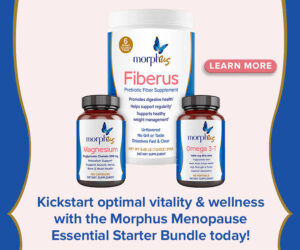
Do you love a cup of joe but are looking for coffee alternatives? Maybe you just want a change of pace. Perhaps coffee doesn’t agree with your digestive system. You may be among those who have a caffeine sensitivity. Whatever your reason is for seeking alternatives to coffee, we have some great suggestions for you, and some of them may seem pretty far out!
Broccoli coffee
Broccoli coffee, or more precisely broccoli powder, was developed by a group of scientists in Australia at Commonwealth Scientific and Industrial Research Organisation (CSIRO). The original goal was to make a product people could add to coffee or other beverages to boost nutritional intake and to help reduce food waste.
To make broccoli coffee, producers put the vegetable through a combination of various pretreatment and drying procedures that are designed to help retain the natural flavor, nutritional content, and color of fresh broccoli. If you add just two tablespoons of broccoli powder to coffee or another beverage, you will be getting the equivalent of two servings of vegetables. Simply stir the powder into a cup of coffee or latte and you have what some call broccolatte.
Read about ditch the coffee addiction: 9 awesome for your health morning beverages
If you’re not ready to add broccoli coffee powder to your cup of joe, you also can use it in smoothies, soups, or sauces.
Mushroom coffee
Similar to broccoli coffee, a coffee made from fungi is designed to be added to ground coffee. Mushroom coffee is a relatively new concept and typically involves using a variety of fungi, including Chaga, lion’s mane, and cordyceps. In fact, although mushrooms have been used in traditional Chinese medicine for many centuries, mushroom coffee also has roots in Finland. Chaga mushrooms are found naturally in Scandinavia, thus using these fungi as a coffee substitute seemed like a natural fit.
Mushroom coffee can be an acquired taste, but the health benefits are worth the effort. Research suggests mushrooms are a great source of antioxidants, copper, beta-glucan, and potassium. These ingredients are among those shown to improve heart health by preventing plaque build-up and maintaining healthy cholesterol levels.
If you want to enjoy mushroom coffee, add one to two tablespoons to your coffee. This will allow you to cut down on your caffeine intake while also enjoying a mellow energy and focus boost from this combination coffee beverage.
Chicory coffee
It’s said that necessity is the mother of invention, and that fits the origins of chicory coffee to a T. It’s believed that chicory coffee became an item when there was a coffee shortage in France in the 1800s.
The roots of the chicory plant can be roasted, ground, and then brewed into a beverage that tastes remarkably like coffee. This member of the dandelion family offers a flavor that is mildly nutty and woody at the same time. You can enjoy chicory coffee on its own or mixed with coffee. Generally, two tablespoons of ground chicory root per eight ounces of water make a tasty cup of this coffee alternative.
A special quality of chicory is that it contains inulin, a prebiotic fiber that is associated with better gut health and weight loss. Chicory is also good for brain health because it contains vitamin B6 and manganese.
Dandelion coffee
Dandelion coffee is actually a tea-like beverage made from roasted dandelion root. You also can find dandelion coffee blends that contain roasted barley rye, chicory root, and sugar beet. This tasty coffee alternative is less acidic and bitter than coffee and is caffeine-free.
According to Julie Upton, a nutritionist for Appetite For Health, “Roasted dandelion root contains probiotics, which can help feed good bacteria in the gut for regularity and immune-boosting.” It also may help reduce inflammation and has antioxidants.
Dandelion roots also are high in potassium, phosphorous, and calcium, all of which are great for bone and tooth health. You can make your own dandelion coffee or look for it in specialty stores or online.
Black tea
Next to water, tea is the most commonly consumed beverage in the world. In the United States, more than 159 million Americans are drinking tea, and about 84 percent of the tea consumed is black tea, according to the Tea Association of the USA.
Why choose black tea as a coffee alternative? If you don’t mind a little caffeine (a cup of black tea averages 47 mg compared with twice that in coffee), you can drink down some great health benefits. Black tea has a high antioxidant content and may enhance heart and gut health, reduce blood pressure and levels of bad cholesterol, and lower cancer risk, blood sugar levels, and risk of stroke. Plus tea has l-theanine which give you a pick-me-up without caffeine and jitters.
[Editor's Note: One of our favorite black teas is Constant Comment from Bigelow Tea. It's the tea that started it all for Bigelow Tea all the way back in 1945 and a delicious blend of black tea, orange peel, cinnamon, and other spices.]
Read about 9 teas that help our health
Matcha latte
Go green with a matcha latte, a beverage that is gaining popularity. A matcha latte combines an antioxidant-rich green tea powder with water, milk, and sometimes a sweetener such as honey or sugar. If you purchase a commercial matcha latte, beware: often they are loaded with sugar. Some matcha products are about 50 percent sugar, so be sure to choose 100% pure matcha green tea powder when making your own latte or ordering one on the road.
A simple matcha latte recipe consists of 1 ½ tablespoons of pure matcha green tea powder, 1 tablespoon water, 6 ounces of hot milk (you can use plant-based beverages too), and honey to taste (optional). Sift the matcha powder into a mug. Add the water and stir well. Add the honey and milk, stir and enjoy.
Golden milk
Also known as turmeric milk, this beverage is a coffee alternative that is often viewed as a general tonic and a remedy for various health concerns. A central ingredient in golden milk is turmeric, an herb with anti-inflammatory and antioxidant properties as well as heart-healthy qualities and an ability to ease digestive troubles.
Milk is naturally the main ingredient, and you can use plant-based beverages as well, especially coconut milk, which can help lower blood pressure and cholesterol levels. Ginger is a part of the recipe as well, and it helps with blood sugar, digestion, and inflammation.
Not all golden milk recipes are the same, so be sure to try several until you find ones that you enjoy.
Bottom line
When you say “no” to a cup of joe, there are plenty of coffee alternatives you can try. Let us know which ones you like the most, and share any other options with us.








